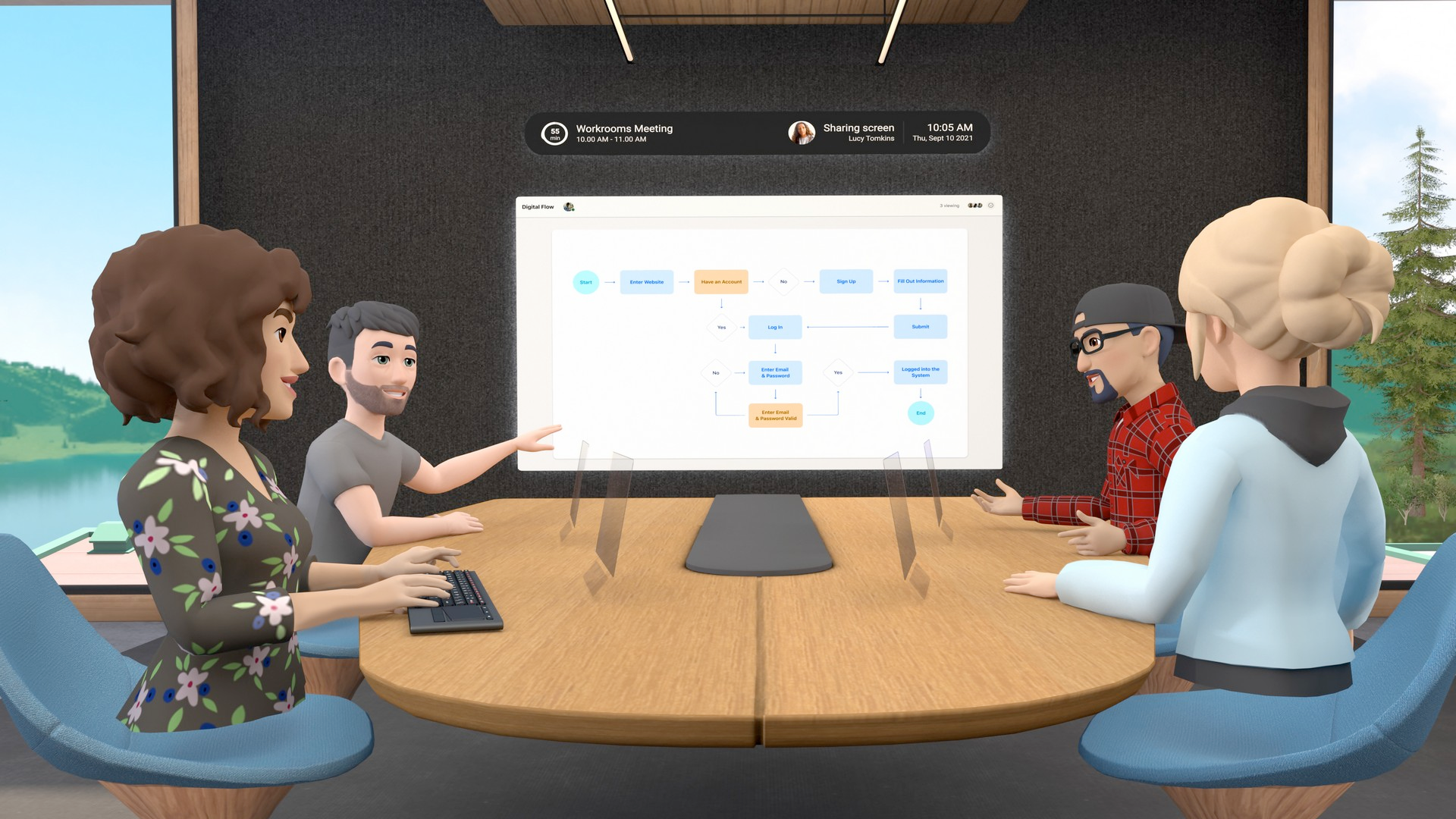Facebook has announced Horizon Workrooms, a VR meeting tool that may one day replace Zoom and other remote collaboration tools. Available as an open beta on Oculus 2 headsets, Horizon Workrooms aims to closely mimic the in-person meeting experience by leveraging all of Oculus' fancy features.
Workrooms allows up to 16 Oculus Quest 2 users to meet in a virtual conference room. Each user is represented by a legless avatar that floats over a chair. Video participants can also phone into the meetings, allowing for a total of 50 people per Workroom.
But Horizon Workrooms goes a lot deeper than that. When you log into a VR meeting, your Oculus Quest 2 prompts you to scan your desk. It then brings your desk into the VR world (and even represents some items, like keyboards, using 3D models). Using the headset's Passthrough feature, you can look down and see what's on your desk at any time without interrupting your VR experience.
Workspaces also integrates with the Oculus Remote Desktop companion app, which is a fancy way of saying that it brings your PC or Mac into the VR world. This makes Workspaces a compelling collaborative tool, as you and other participants can actively share documents, take notes, draw diagrams, and carry out other tasks that are common during in-person meetings.
Facebook employs a ton of small tricks to make workspaces feel more lifelike. Spatial audio might be the most interesting feature in this regard, as it places your coworkers' voices around the conference room so you can easily locate who's talking. Of course, the Oculus avatars aren't exactly true-to-life, but at least you don't need to comb your hair or get dressed for a VR meeting.
Horizon Workspaces is part of Facebook's "metaverse" business plan. The goal behind metaverse is to fill every corner of your life with Facebook-created software, thereby creating an endless revenue stream. Virtual reality has the potential to build this metaverse in workplace and leisure environments. However, Facebook still needs to develop AR products, like smart glasses, if it wants to truly capture the world in its metaverse.
Source: Facebook

